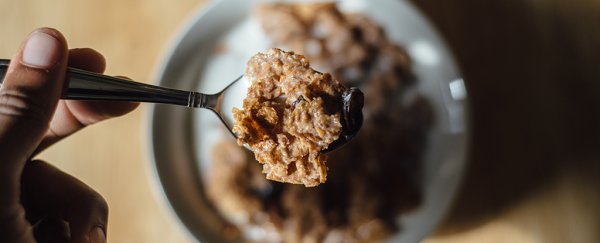Gluten-Free Diets Could Be Harmful to Some
Everywhere one turns today, they hear about gluten-free this and gluten-free that. You hear about gluten-free diets and gluten-free foods.
The gluten-free craze most likely started with people suffering from celiac disease. For those suffering from celiac disease, consuming anything containing gluten, it sets off an immune reaction that irritates and inflames the inner lining of the small intestine. As result, the small intestine is incapable of absorbing a variety of nutrients such as some carbs, proteins, vitamins, fats and other vital minerals. It also causes the person to experience diarrhea, gas, bloating, fatigue, anemia, weight loss, constipation, depression and an itchy rash.
One of the key ways to treat celiac disease is to eliminate gluten from the diet. Over time, the lining of the small intestine will heal and the symptoms subside.
Some people suffer from what is called non-celiac gluten sensitivity, where they react to gluten much like those suffering from celiac disease, but who do not actually have the disease. For these people, eliminating gluten from their diet helps, just like it does for those with celiac disease.
Because of people with both conditions, gluten-free diets began to grow in popularity. Some looking for the latest fad diets decided that gluten must be bad for everyone, so they created gluten-free diets. These diets caught the attention of many people who constantly seek the latest fad diet or those who believed gluten-free also would them lose weight and/or control other conditions like type 2 diabetes.
But, is a gluten free diet good for everyone?
Not really!
It is estimated that around 70% to 85% of people with celiac disease have never been diagnosed. If someone went on a gluten-free diet and was then to be tested for celiac disease, the test could come back with a negative reading, when in fact the person does have celiac disease. Yes, going gluten-free helped them, but without a proper diagnosis, it could result in other complications later on.
It’s also suggested that being on a gluten-free diet could also interfere with the tests for other conditions.
Going on a gluten-free diet could also result in deficiency in things like vitamin B, iron and other vital nutrients. Gluten-free substitutes like rice and tapioca, unless specifically fortified with these nutrients, do not provide the vitamins and nutrients the body needs. That’s why people on gluten-free diets also need to eat more vegetables, fruits, gluten-free whole grains, nuts and seeds.
Another problem with people on a gluten free diet is junk food. There are a number of gluten-free junk foods like cookies, but one has to remember that junk food is still junk food. Just because a gluten-free cookie doesn’t have any wheat flower in it, it still has bad carbs, sugars and calories.
“In fact, one recent study found that when healthy people eat a low-gluten diet, they experience less bloating and lose a modest amount of weight compared with those eating a high-gluten diet with the same amount of calories and fiber. However, the researchers attribute the effects of the low-gluten diet not to its lower gluten content but to a major change in the composition of the participants’ fiber intake — a factor that caused changes in their intestinal microbiomes and production of bacterial compounds affecting digestion and energy metabolism.”
“‘We conclude that the effects of low-gluten dieting in healthy people is NOT due to reduced intake of gluten itself but rather to a concomitant major change in dietary fiber composition by reducing fibers from wheat and rye and replacing them with fibers from vegetables, brown rice, corn, oat, quinoa, and other non-gluten containing whole grain cereals,’ said study author Dr. Oluf Pedersen, a professor at the University of Copenhagen.”
Remember, just because someone says a gluten-free diet is healthier, doesn’t necessarily mean it really is. What’s good for one person may not be good for another. If you have a bowel problem and want to go on a gluten-free diet, have yourself tested for celiac disease FIRST. If you don’t have a bowel problem or have any reason to avoid gluten but want to go on a gluten-free diet to help lose weight or control blood sugar, make sure you don’t end up with certain vitamin and nutrient deficiencies. Maybe it’s not the gluten you need to stop eating, but other things instead.









Recent Comments